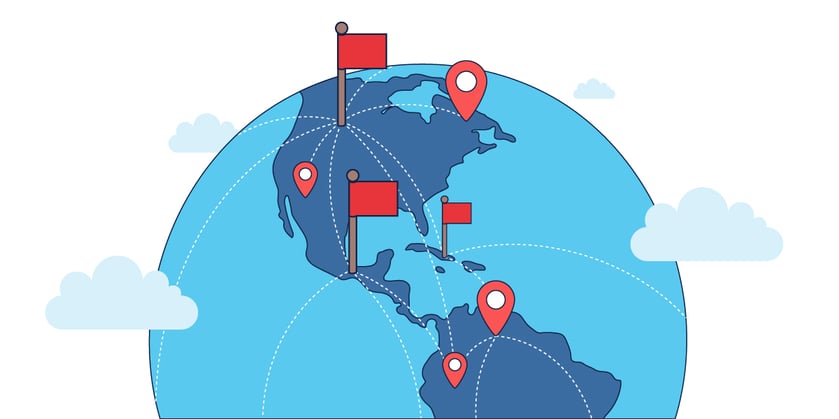Sanctions: What to expect next?
The invasion of Ukraine is changing the world order and the pressure to resolve the conflict is growing and will continue to do so as sanctions against Russia, President Vladimir Putin and his associates increase.
In short, the situation's impact remains highly uncertain, with much depending on how long it continues, its final outcome, and what happens in terms of global sanctions, boycotts and the reaction to them.

What can South African Accountable Institutions and businesses do?
Despite South Africa abstaining from the UN general assembly vote to reprimand Russia over its invasion of Ukraine, many businesses in South Africa have exposure to jurisdictions, persons or entities impacted by the conflict, either through their own operations, supply chains, or customer base and whilst there may not be sanctions issued specifically by South Africa, international restrictions may cause operational challenges by limiting the ability to service other trading partners, as well as bringing potential reputational risks if your wider environmental exposures to the conflict are not understood.
Analyse the sanctions and restrictions
Understanding the specific current sanctions in the wider context of your entire business, such as that of your suppliers and customers can help assess any potential current impact on your supply chain or your potential revenue opportunities. An example of questions to ask:
-
Will any sanctions or prohibitions apply to you, your supply chain, agents or customers?
-
Will the restriction of SWIFT payments to Russian Banks impact how you, your suppliers or customers make or receive payments?
Identify your wider exposure
Sanctions are ever moving in reaction to developing geopolitical changes, being mindful of a wider exposure to Russia may provide an opportunity to proactively prepare for any future expansion or development of sanctions. Important questions to consider are if any of your shareholders, Ultimate Beneficial Owners or controlling parties are linked to Russia as well as do you rely on lenders or banks linked to Russia?
How could you respond?
Taking a considered, risk-based approach to analysing your exposure and risk can help guide your next steps.
Some steps to take include:
-
Regularly screen your customers and third parties against consolidated sanctions lists
-
Undertake enhanced due diligence on any parties identified as potentially higher risk in relation to current and potential sanctions and restrictions being mindful of increasing attempts to evade sanctions controls
-
Review guidance and notices issued by industry bodies, regulators, enforcement agencies and governmental bodies and subscribe to their updates
-
Respond to any changes by reassessing your exposure and impact
-
Ensure that any procedures or policies are updated and communicated to appropriate staff
-
Base any decisions on your organisations risk appetite, taking into account potential factors such as legal, financial and risks despite the potential economic losses
-
Be mindful of any decision to exit relationships, considering the consequences on the business, employees, clients and suppliers
-
Seek expert guidance or legal assistance as appropriate
Quick Facts:
-
DocFox utilises a broad list of consolidated sanctions, including those issued by the US Office of Foreign Asset Control (OFAC), UK HM Treasury (HMT), European Union (EU) and United Nations (UN)–and these are being updated regularly with those published around the current conflict.
-
New applications loaded into DocFox will be screened against the latest data immediately, and existing applications in DocFox will be screened against the latest data. Should there be a potential match, you will be notified.
-
Be mindful that sanctions are passed down the chain of 100% ownership, meaning that entities that are fully owned by a sanctioned entity are typically included within the sanction unless granted a specific licence to exempt them.
-
You can still pay for imports from Russia and receive payment for exports to Russia as long as the counter party is not sanctioned or subject to embargoes, though you may experience challenges with banks around SWIFT banking restrictions in Russia.
-
You can still send and receive funds to and from Ukraine, though there is likely to be additional due diligence checks being undertaken by the banks which is a common compliance procedure in times of conflict.